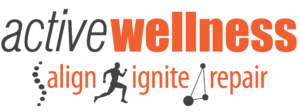Stress
What is Stress?
Modern life is full of pressure, stress, and frustration. According to a recent survey by the American Psychology Association, 45% percent of Americans are concerned about the level of stress in their everyday lives and 2/3 of Americans say they are likely to seek help for stress.
The body responds to stress by going into ‘fight-or-flight’ mode, with a goal of self-preservation. With an increase in stress hormones, the body responds by shutting down some systems and ramping up others. Decreasing digestive activity while increasing heart rate and blood pressure are common.
This long-term activation of the stress-response system can disrupt almost all your body’s processes. Chronic stress most commonly negatively impacts the digestive system, immune system, and central nervous system. With decreased
After decades of research, it is clear that the negative effects associated with stress are real. Although you may not always be able to avoid stressful situations, there are a number of things that you can do to reduce the effect that stress has on your body.
What Causes Stress?
Stressors can differ from person to person. Most commons causes of stress can include personal relationships, career, environment, lifestyle, health, among many others.
Stress impacts the body through a ‘flight-or-fight’ response. This shuts down some systems and ramps up others, with a goal of self-preservation of the body. The digestive system is commonly shut down, decreasing digestion; while the cardiovascular system is ramped by with an increase in heart rate and blood pressure.
Chronic stress can negatively impact the digestive system, nervous system, immune system, among others. For this reason, ongoing stress impacts how the body functions and can have lasting effects on your health.
How Can We Help?
Our team at Active Wellness can help you manage stress through many different services. Chiropractic care is important to help alleviate tension built upon the nervous and muscular systems through stress. Relieving this tension helps your body function more efficiently.
We can also help relaxation techniques, with learning and practicing techniques that work for you, we can help you better handle life stressors. In addition, offering exercise and nutrition coaching helps develop habits to manage and avoid body stressors.
Tips for Stress Management
Relaxed Breathing
Helping to relax and slow your breathing can help slow the body’s stress response.
Take 6 seconds to inhale through your nose, slow and deep. Expand your stomach and fill your body with air. Hold this for 4 seconds. Then exhale slowly, lasting 6 seconds. Repeat this 3 to 5 times and complete 2 to 3 times per day.
Progressive Muscle Relaxation
Intentional muscle relaxation can help reduce tension in the muscle built up during stress.
Tense a specific muscle group (i.e. neck) for 5 seconds. From there, relax the muscle group for 30 seconds. Repeat twice per muscle group before moving to the next.
Soothing Sounds
Soothing sounds, such as music or spoken meditation, can help you take a mental vacation. Take 10 minutes and listen to soothing music, guided meditation, or nature sounds to help soothe your mind, and in turn your body.
Exercise
Exercise is one of the most important habits we can develop to create health for our body. Exercise can specifically help relieve pent-up energy and tension from chronic and daily stress. Increased activity can also help increase stress management response by the body with pending and upcoming stress.
In addition, many benefits of exercise, such as better sleep, more concentration, heightened immune system, among others, can help avoid negative stress consequences.


